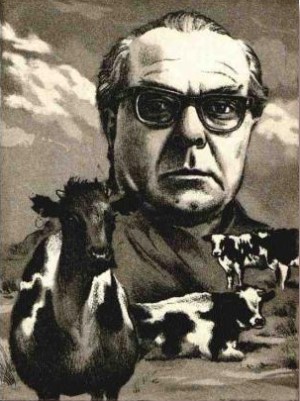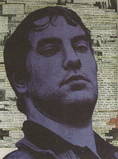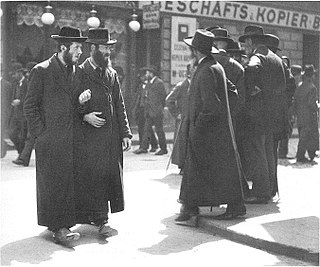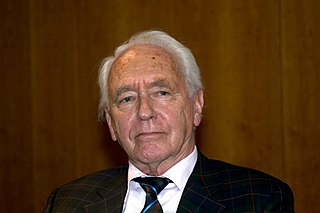
Arno Schmidt was a German author and translator. He is little known outside of German-speaking areas, in part because his works present a formidable challenge to translators. Although he is not one of the popular favourites within Germany, critics and writers often consider him to be one of the most important German-language writers of the 20th century.

Rolf Dieter Brinkmann was a German writer of poems, short stories, a novel, essays, letters, and diaries.

Joe May was an Austrian film director and film producer and one of the pioneers of German cinema.
Volker Helmut Manfred Zotz is an eminent Austrian philosopher, religious studies scholar, Buddhologist and a prolific author.

Peter Rühmkorf was a German writer who significantly influenced German post-war literature.

Alfred Polgar 17 October 1873, Vienna – 24 April 1955, Zurich) was an Austrian-born columnist, theater critic, writer and occasionally translator.

Wolf Dietrich Schneider was a German journalist, author, and language critic. After World War II, he learned journalism on the job with Die Neue Zeitung, a newspaper published by the US military government. He later worked as a correspondent in Washington for the Süddeutsche Zeitung, then as editor-in-chief and from 1969 manager of the publishing house of Stern. He moved to the Springer Press in 1971. From 1979 to 1995, he was the first director of a school for journalists in Hamburg, shaping generations of journalists. He wrote many publications about the German language, becoming an authority. He promoted a concise style, and opposed anglicisms and the German orthography reform.

Daniela Dahn is a German writer, journalist and essayist. Since the reunification of Germany in 1990, Dahn has been an outspoken critic of the reunification process. Her highly personal style of writing, and her strident political opinions, have stirred controversy within Germany, but Dahn, who considered herself a dissident within East Germany before 1989, advocates for a critical journalism that continues the democratic tradition of challenging the government and policies of reunified Germany.

Bahman Nirumand ; born 18 September 1936 in Tehran) is an Iranian and German journalist and author.
Franz Schulz was a playwright and screenwriter who worked from 1920 through 1956.
Hans-Hermann "Hannes" Sprado was a German journalist and author. Until his death he was editor-in-chief and publisher of the popular science magazine P.M. Magazin.
Heinz Ludwig Arnold was a German literary journalist and publisher. He was also a leading advocate for contemporary literature.

Fritz Joachim Raddatz was a German feuilletonist, essayist, biographer, journalist and romancier.

Inquest is a 1931 German crime film directed by Robert Siodmak and starring Albert Bassermann, Gustav Fröhlich and Hans Brausewetter. Along with another film that Siodmak made the same year Storms of Passion, it anticipates the later development of film noir. It was made by German's largest studio Universum Film, with sets designed by art director Erich Kettelhut. Paul Martin, who soon after emerged as a leading director, was assistant director to Siodmak on the film. It was based on a 1927 play of the same title by Max Alsberg and Ernst Hesse. A separate French-language version About an Inquest was also produced.
Diplomats is a 1918 German silent film directed by Harry Piel. It features the detective Joe Deebs.
Kurt Honolka was a German musicologist, journalist, and music and theatre critic. He is known as a translator of the librettos of Czech operas into German, such as Smetana's Dalibor and Janáček's Osud.
Milena Moser is a Swiss writer. Her first language is Swiss German. She has emigrated to the United States twice, in 1998 and again in 2015, but German remains the language in which she writes, and in which by 2018 more than twenty of her novels had been published.

Martin Kunzler is a German jazz bassist and music journalist. He gained particular fame through his rororo Jazz-Lexikon published by Rowohlt Verlag, which is now considered the standard German-language work on this musical genre.
Gabriele Fritsch-Vivié is a German theatre studies schlolar, playwright and journalist. A member of the working group "Women in Exile", she focuses on biographies of political repression in the first half of the 20th century.
Gisela Elisabeth Bulla was a German archaeologist, author, and politician. She authored several books on the subject of domestic animals. From March 1995 to September 2000, she was also the federal chairwoman of the Human Environment Animal Protection.











